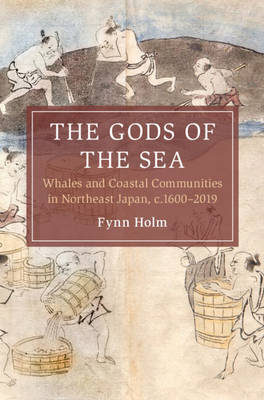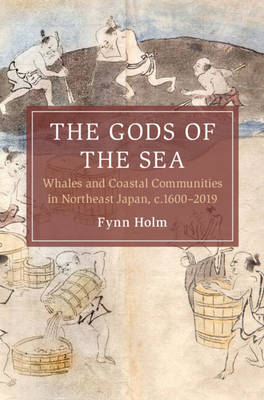
Bedankt voor het vertrouwen het afgelopen jaar! Om jou te bedanken bieden we GRATIS verzending (in België) aan op alles gedurende de hele maand januari.
- Afhalen na 1 uur in een winkel met voorraad
- In januari gratis thuislevering in België
- Ruim aanbod met 7 miljoen producten
Bedankt voor het vertrouwen het afgelopen jaar! Om jou te bedanken bieden we GRATIS verzending (in België) aan op alles gedurende de hele maand januari.
- Afhalen na 1 uur in een winkel met voorraad
- In januari gratis thuislevering in België
- Ruim aanbod met 7 miljoen producten
Zoeken
€ 158,95
+ 317 punten
Omschrijving
Japan is often imagined as a nation with a long history of whaling. In this innovative new study, Fynn Holm argues that for centuries some regions in early modern Japan did not engage in whaling. In fact, they were actively opposed to it, even resorting to violence when whales were killed. Resistance against whaling was widespread especially in the Northeast among the Japanese fishermen who worshiped whales as the incarnation of Ebisu, the god of the sea. Holm argues that human interactions with whales were much more diverse than the basic hunter-prey relationship, as cetaceans played a pivotal role in proto-industrial fisheries. The advent of industrial whaling in the early twentieth century, however, destroyed this centuries-long equilibrium between humans and whales. In its place, communities in Northeast Japan invented a new whaling tradition, which has almost completely eclipsed older forms of human-whale interactions. This title is also available as Open Access.
Specificaties
Betrokkenen
- Auteur(s):
- Uitgeverij:
Inhoud
- Aantal bladzijden:
- 234
- Taal:
- Engels
- Reeks:
Eigenschappen
- Productcode (EAN):
- 9781009305518
- Verschijningsdatum:
- 24/08/2023
- Uitvoering:
- Hardcover
- Formaat:
- Genaaid
- Afmetingen:
- 152 mm x 229 mm
- Gewicht:
- 480 g

Alleen bij Standaard Boekhandel
+ 317 punten op je klantenkaart van Standaard Boekhandel
Beoordelingen
We publiceren alleen reviews die voldoen aan de voorwaarden voor reviews. Bekijk onze voorwaarden voor reviews.









